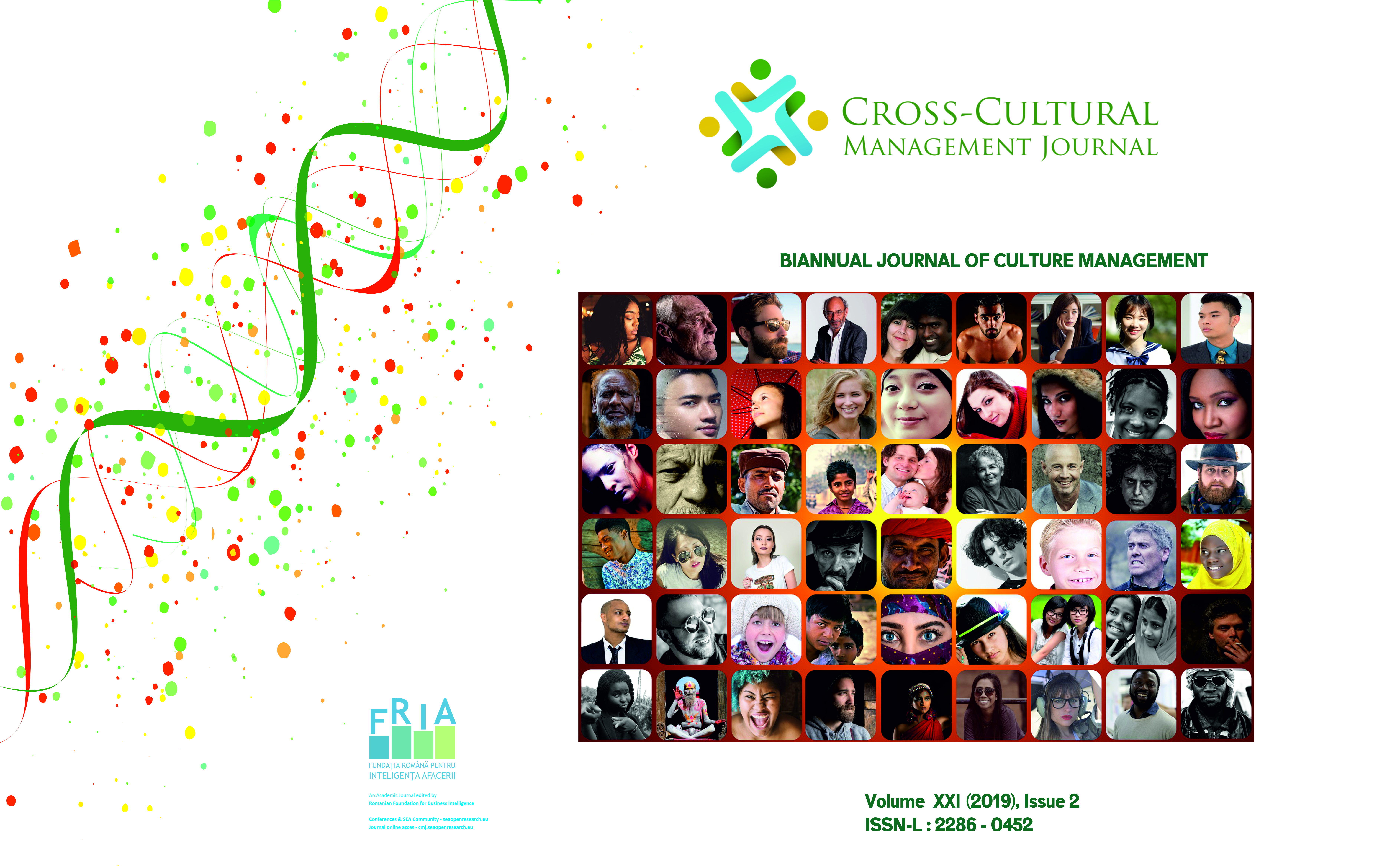THE IMPORTANCE OF NATIONAL CULTURE DIMENSIONS ON INTERCULTURAL COMPETENCE DEVELOPMENT OF FUTURE MANAGERS
THE IMPORTANCE OF NATIONAL CULTURE DIMENSIONS ON INTERCULTURAL COMPETENCE DEVELOPMENT OF FUTURE MANAGERS
Author(s): Lilia Covaş, Angela PirlogSubject(s): Economy, Business Economy / Management, Business Ethics
Published by: Fundatia Română pentru Inteligenta Afacerii
Keywords: Intercultural competence; Cultural dimension; Trompenaars and Hampden-Turner model;
Summary/Abstract: The process of training intercultural competences of future managers is closely associated to the national culture of the country they come from. This is why studying cultural dimensions is very important in this context. Possible intercultural differences can be ameliorated through the getting of intercultural competences, and the intercultural formation considers the cultural positioning of the countries, according to different models. Main methodological approach of this paper represents the comparative research. Part of the information in the article includes the works of foreign and local researchers in the field of managerial theory and practice and scientific studies carried out in the Republic of Moldova and Romania. We used as the basis of our study the model of national culture differences of Fons Trompenaars and Charles Hampden-Turner. In the article the authors analyzed the cultural dimensions of the business students from Romania and the Republic of Moldova. The results of the study allow highlighting certain important particularities, which must be taken into account when developing intercultural competence of future managers. This is explained by the fact that the culture and the way they see the world will dictate their attitudes and behaviors in their personal and professional lives. How they perceive different cultures and how they react to them should make them think about problems and then find the best solutions for maintaining intercultural consensus.
Journal: Cross-Cultural Management Journal
- Issue Year: XXI/2019
- Issue No: 2
- Page Range: 111-119
- Page Count: 9
- Language: English

